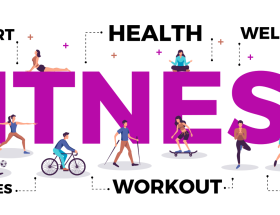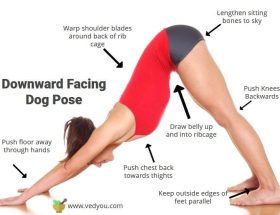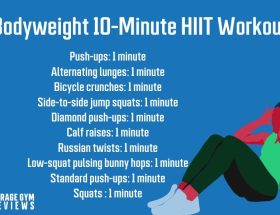Fitness is a journey that requires dedication, commitment, and perseverance. One of the keys to success in your fitness journey is setting realistic goals and having a plan to stick to them. Whether you’re looking to lose weight, gain muscle, or improve your overall health, setting realistic fitness goals is crucial for long-term success.
Setting SMART Fitness Goals
When setting fitness goals, it’s important to follow the SMART criteria – specific, measurable, achievable, relevant, and time-bound. This ensures that your goals are clear, actionable, and attainable. For example, instead of setting a vague goal like “I want to lose weight,” a SMART goal would be “I want to lose 10 pounds in the next 3 months by exercising 4 times a week and following a healthy diet.”
Breaking Down Your Goals
Once you’ve set your SMART fitness goals, it’s important to break them down into smaller, more manageable steps. Breaking down your goals can help you stay motivated and track your progress more effectively. For example, if your goal is to run a 5K, break it down into smaller milestones such as running 1 mile without stopping, increasing your distance each week, and eventually completing a 5K race.
Creating a Fitness Plan
In order to stick to your fitness goals, you need to have a solid plan in place. This includes scheduling your workouts, meal prepping, and setting aside time for self-care and recovery. Having a plan can help you stay on track and avoid making excuses or skipping workouts. Consider working with a personal trainer or fitness coach to help you create a customized fitness plan that aligns with your goals and lifestyle.
Tracking Your Progress
Tracking your progress is essential for staying motivated and accountable. Keep a fitness journal or use a fitness app to track your workouts, measurements, and food intake. This can help you see how far you’ve come and identify areas for improvement. Celebrate your wins, no matter how small, and use setbacks as learning opportunities to adjust your plan and stay on track towards your goals.
Staying Consistent
Consistency is key when it comes to achieving your fitness goals. Make exercise and healthy eating a priority in your daily routine, even on days when you don’t feel like it. Find ways to stay motivated, whether it’s listening to music, working out with a friend, or joining a fitness class. Remember that progress takes time and consistency, so don’t get discouraged if results don’t come overnight.
Adapting and Reassessing Your Goals
As you progress on your fitness journey, it’s important to adapt and reassess your goals as needed. Your goals may change based on your progress, preferences, or lifestyle factors. Be flexible and open to adjusting your goals as necessary to ensure they remain realistic and achievable. Seek feedback from a fitness professional or mentor to help you stay on track and make informed decisions about your fitness goals.
Conclusion
Setting realistic fitness goals is a fundamental step towards achieving your desired results. By following the SMART criteria, breaking down your goals, creating a solid plan, tracking your progress, staying consistent, and adapting as needed, you can set yourself up for success on your fitness journey. Remember that everyone’s fitness journey is unique, so focus on your own progress and celebrate your achievements along the way.
Are you ready to set realistic fitness goals and stick to them? Start today and take the first step towards a healthier, stronger, and happier you!







